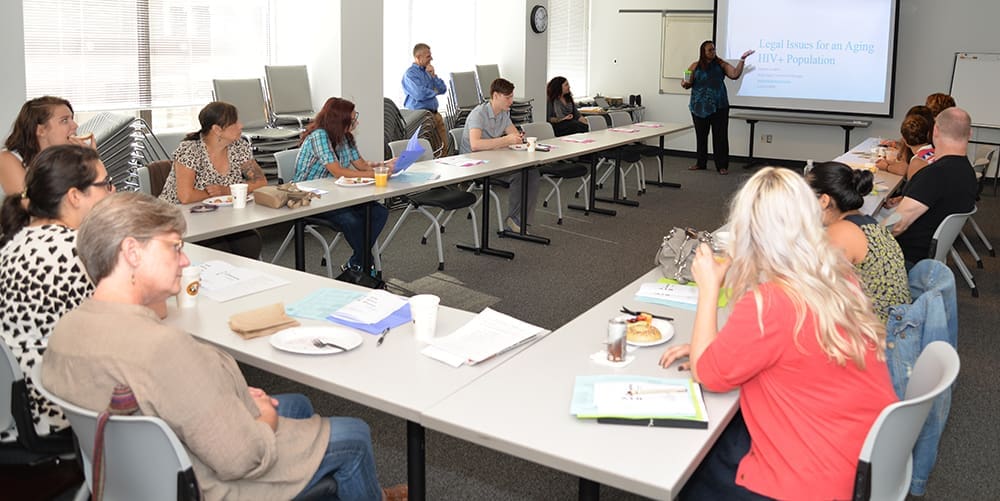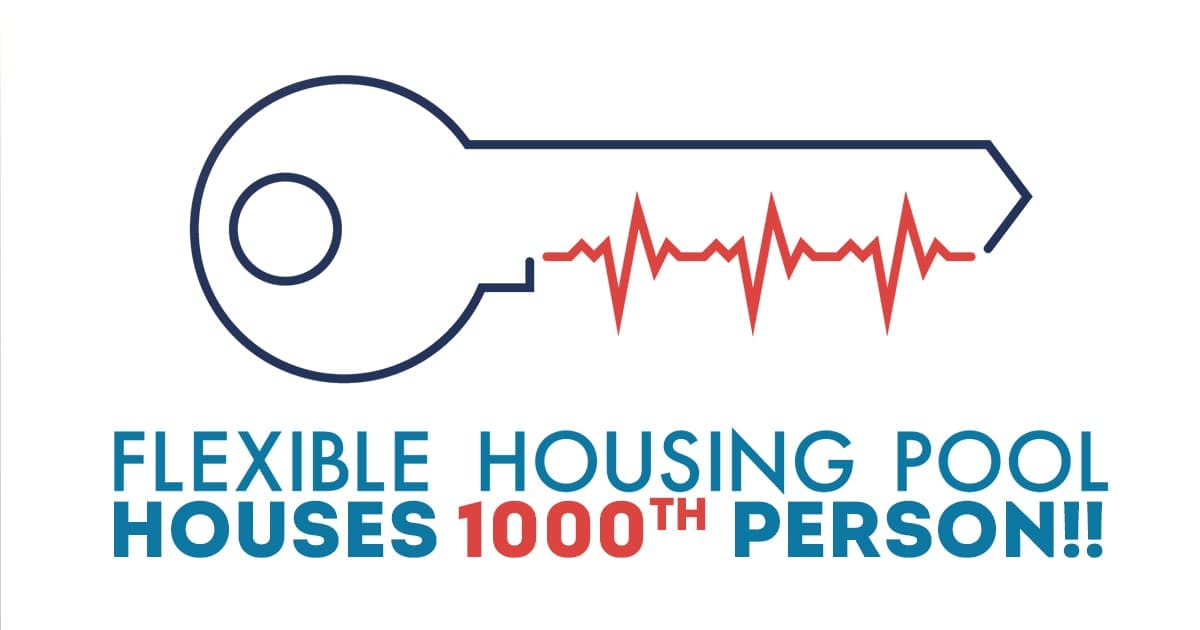
Despite the uncertainty of the ACA’s future and fear about the new administration’s discriminatory policies, AFC’s case managers stay committed to providing the quality care clients need.
By Cotrell Loftin
Mara Williamson is standing outside the conference room, warmly greeting people as they enter. “Good morning and welcome to the training. Don’t forget to get a cup of coffee and sign in!” On a typical training day, Williamson sees 20 case managers, coming from all over the city and suburbs, to attend these learning sessions.
As the case managers file in and get settled, Williamson is aware that the training session better be good. These important guests are busy and have come to expect trainings that will help them as they serve some of the city’s most vulnerable residents. Case managers are often the first line support for people living with HIV, people experiencing homelessness or people living with multiple health challenges. They help clients keep their medical appointments, get food, and tend to a myriad of pressing needs.
Case managers are a vital resource to people living with HIV, and there is a whole system behind them, helping them succeed. Professionals like Williamson make this much needed support happen. From the case manager to training specialists, the AIDS Foundation of Chicago (AFC)’s coordinated HIV case management system ensures that more than 5,000 people get the support and care they need.
As a Ryan White training specialist, Williamson coordinates training sessions and workshops throughout the year to keep case managers up to date on client care. “When people have extreme health conditions, they need a lot of extra help.” Williamson is passionate about providing engaging, meaningful and relevant trainings for more than 150 case managers throughout Chicago. Last year alone, AFC hosted more than 50 trainings for case managers.
Williamson works closely with Michael Grego, who has been an HIV case manager since the 1990s. Now working as AFC’s client and data services manager, Grego applies his decades of experience to shape a new generation of case managers.
“[From my time as a case manager] I have a wealth of resources. This helps me assist everything from training to hands-on technical support for case managers,” said Grego. He is well known for the calm and practical advice he gives training specialists and case managers.
Being a case manager isn’t easy; that’s why this support system is so necessary.
“I currently have a caseload of 60 clients,” says Gwen Jones-Robinson, a case manager with Test Positive Awareness Network. “Their medical care is my number-one priority. That means checking labs, making sure they get medication, knowing what services are out there [for my clients] … including mental health care. If my client needs help with housing and getting medical benefits, I help them with that as well.”
Before case managers can help clients, AFC makes sure they know their stuff. As the leader of the largest HIV coordinated case management system in the U.S., AFC requires all Ryan White-funded case managers to take at least 12 course credits per year. This prepares case managers with the necessary knowledge and the latest advancements to provide compassionate, thoughtful consultation in challenging circumstances. Case managers also receive special training to adequately support clients’ medication needs, immigration concerns, and social support needs.
Williamson recalled a training for supporting undocumented clients that struck a chord with case managers: “The training was in Spanish, so we had new case managers who spoke Spanish primarily. The training was what to do when somebody you’re working with has a fear of being deported … As a result of this training, case managers could help undocumented clients become comfortable seeking the services without fear of deportation.”
“One of the case managers was so moved that they gave big hugs all around,” recalled Williamson. “Everybody was really appreciative because they didn’t know how to talk with [undocumented immigrants] about services, and they know that people who have a fear of being deported aren’t as willing to come to services in general.”
Under the new Trump administration, there is a lot of uncertainty about the possible repeal of the ACA. “We do know that the ACA will be affected, and we need to make sure that case managers are as up-to-date on the situation as possible,” said Williamson. “We peppered our trainings with a lot more Affordable Care Act trainings and we keep them up to date on policy changes and potential replacement plans.”
Through regular training, all case managers have access to the same tools and same guidelines to provide the same quality services to all Ryan White clients regardless of where they go for services. In addition to anticipating case managers’ needs to better serve their clients, the trainings respond to new scenarios as they arise. Case managers take an active role in making sure their needs are met by suggesting topics or themes they encounter in their work. “I’m very passionate about our youth. I’d like to learn more about the services we can offer them and how we can keep the younger clients engaged,” said Jones-Robinson.
AFC’s case management training program is designed with the client’s best interests in mind. With the essential services case managers provide, its training program goes above and beyond to give them the information and skills they need to help people connect to resources for better, more prosperous lives.


